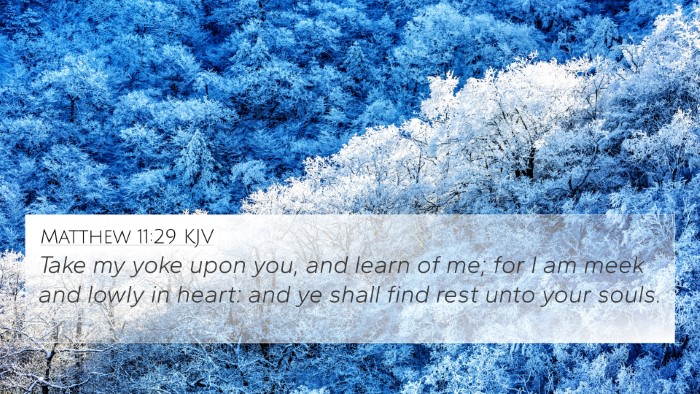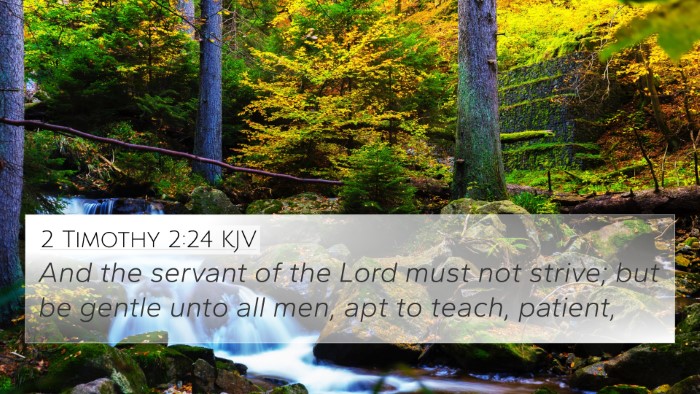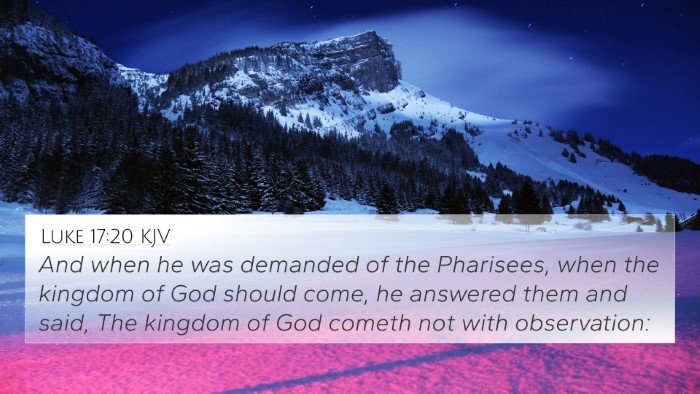Understanding Matthew 12:19
Matthew 12:19 states, "He will not quarrel or cry out, nor will anyone hear his voice in the streets." This verse encapsulates the nature of Jesus' ministry and His approach as the prophesied Messiah. To deepen the understanding of this verse, we can refer to various public domain commentaries, providing insights that resonate with the biblical themes of meekness, humility, and the fulfillment of prophecy.
Verse Context and Meaning
This verse is situated within a larger narrative where Jesus is revealed as the servant of the Lord, fulfilling the prophecy described in Isaiah 42:1-4. This link highlights His character as one who does not seek to draw attention to Himself through loud proclamations or disputes.
Insights from Public Domain Commentaries
- Matthew Henry: Henry emphasizes that Jesus exemplifies humility and gentleness, contrasting the often boisterous expectations of a political messiah. He points out that Jesus did not engage in public disputes but rather communicated His message quietly and with authority.
- Albert Barnes: Barnes elaborates on the significance of the phrase "He will not quarrel or cry out." This reflects Jesus’ approach of not creating factions or violently opposing unbelief. His was a ministry marked by grace and patience.
- Adam Clarke: Clarke notes how this verse is a fulfillment of the prophecy concerning the Messiah. He highlights that true strength lies in self-control and the ability to remain steadfast and respectful, even in opposition.
Thematic Connections
Connections between this verse and others throughout the Bible illuminate key themes regarding Jesus' character and mission:
- Isaiah 42:1-4: Directly foretells the coming of the Messiah, depicting Him as gentle and compassionate.
- Philippians 2:7-8: Describes Jesus’ humility in taking the form of a servant and His submission to death for humanity's sake.
- Matthew 11:29: Jesus invites those weary to learn from Him, emphasizing His gentle and humble heart.
- John 18:36: Jesus speaks of His kingdom not being of this world, highlighting His non-confrontational approach to His mission.
- 1 Peter 2:23: Jesus is portrayed as one who, when reviled, did not return reviling, illustrating His restraint in the face of adversity.
- Isaiah 53:7: Predicts the suffering servant, one who would be silent before His accusers, pointing to Jesus’ fulfillment of this role.
- Matthew 5:5: Blessed are the meek, reinforcing the virtue of humility that Jesus embodied.
Bible Verse Parallels and Connections
Cross-referencing biblical texts provides additional depth to the understanding of Matthew 12:19. Such parallels offer insight into Jesus’ overall mission and character:
- Mark 10:45: Jesus came to serve, not to be served, encapsulating the mission of humility.
- Luke 4:18: Jesus' mission is proclaimed, showing His dedication to the poor and oppressed without the need for public outcries.
Tools for Bible Cross-Referencing
To further explore and understand connections between Bible verses, using a Bible concordance or a cross-reference Bible study guide is helpful. These tools allow for identifying relationships between scriptures, making it easier to draw parallels and deepen insights.
Conclusion
Matthew 12:19 serves as a profound reminder of the nature of Christ’s ministry. His approach teaches believers about the value of gentleness, humility, and the power of stillness amidst conflict. By examining this verse in conjunction with others, one can appreciate the holistic narrative of scripture that points to Jesus as the promised servant, engaged not in quarrels, but in the quiet proclamation of truth and love.








